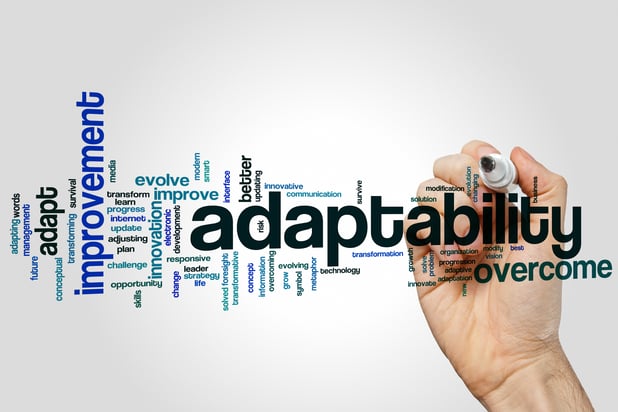
Complexity Communication
Porter-O’Grady and Malloch (2011) present “complexity communication” and advocate a three step process to achieve the greatest communication (p. 270).

Adaptability and Commitment
Adaptability and commitment are not mutually exclusive concepts. When used in tandem, adaptability and commitment are symbiotic and ensure a holistic management approach. By way of example, Quinn (1996) recounted the experience of an executive who.

Why Ask Questions?
The title of this post isn’t intended as a riddle, rather contemplative. It can almost be guaranteed given extensive publications on the topic of questions—each of us has come across at least one article, podcast, webinar, book, live stream, etc..

Using Data to Manage Through Disruption
COVID-19 has sent some businesses into a tailspin and left many others with constrained budgets. Disruption like this pushes us into survival mode—going through the motions and hoping the crisis will be over soon. That’s problematic when the crisis.

3 Things To Consider When Adapting Your Operating Model During A Crisis
Many leaders find themselves contemplating an operational shift during a crisis. COVID-19 has been no exception. Travel and hospitality businesses have had to respond to a steep dropoff in demand, while technology entities like Zoom and Microsoft.

Using Data to Improve Employee Productivity and Morale During COVID-19
As you probably know, COVID-19 has put intense stress on many businesses. This is even true for companies that generally have high productivity and healthy employee morale.

Chats with Hannah - Disruption and Resilience
This second edition of our “Chats with Hannah” mini-blogs shares a recent discussion about disruption and resilience. The conversation was in context of what companies are experiencing because of the COVID-19 pandemic. Many articles in past months.

Chats with Hannah
Often in internal discussions at New Canvas Advising (NCA), the conversation is rich and multi-layered as Hannah talks through applying scientific principles to practical business realities. Very often, I think, “this would make a great blog”, but.

New Words, Coyotes and Blueberries
I learned a new word this week. While Webster identifies its first known use in 1616 in the context of “doing or producing good”, other sources date it back to the early 1400s. Most likely, I have encountered this word before. However, I heard it.

A Discussion of Transformational Leadership Examining Leader Behavior and Organizational Culture
The U.S. health care system is experiencing a three-pronged revolution involving policy, financial, and political strategies. National discussions of health care policy revolving around financial extremes and ineffectual outcomes are familiar to all.
